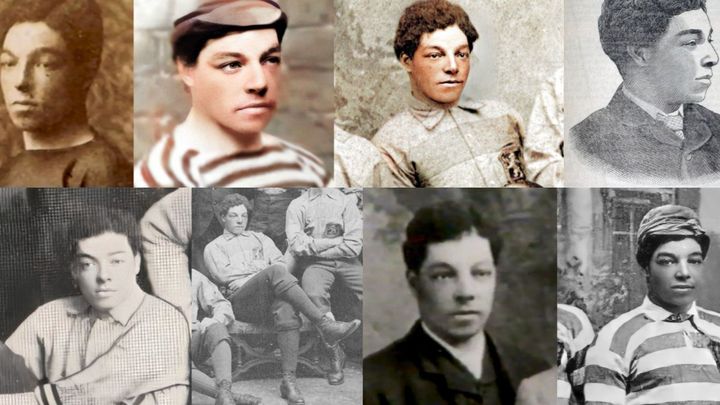
Andrew Watson Memorial
Donation protected
History had forgotten Andrew Watson. His fame and celebrity in the 1880s had long since been lost to the passing of time. Only recently has his story been revealed and his influence in the evolution of association football recognised.
Born in Demerara in 1856, Andrew Watson was the son of a Scottish solicitor and plantation owner and the daughter of a freed slave. Around the age of two, his father brought him to England, where he received an excellent education. Watson grew up as a fine English gentleman who was expected to attend Oxford or Cambridge but chose Glasgow University. Aged nineteen, he arrived in Glasgow but would only spend a few weeks at the University before dropping out, preferring to be schooled in the art of association football.
Scottish Football was superior to the English game then, and Scottish players were the best in the world. Watson would spend the next five years learning the game from the Glasgow masters, developing rapidly. He joined Queen's Park, one of the finest teams in the land, where he would win three Scottish Cups and four Charity Cups. He was selected to play for Glasgow City, and by 1880 he was knocking on the door of the international team.
In March 1881, he made his debut for Scotland, captaining them to a historic 6-1 win at the Oval in London, which remains England's worst defeat on home soil. In the following year, at Hampden, Watson and Scotland delivered another thumping 5-1 loss, and the English were sent homeward to think again. The English F.A., fearing losing football credibility, were desperate to find a solution.
A theory surfaced that suggested the Scots were so good because many National team members belonged to Queen's Park. They decided that the connection these players had on the field and the familiarity with each other's play was the root of the Scottish successes.
Some members of the English F.A. decided to create a team in the Queen's Park mould that would develop English players. By arranging fixtures against the top clubs in England, the team would produce higher-quality modern players with more ability, skill and experience to match the Scottish players.
The team would become known as the Corinthian Football Club. They become a team of the best amateurs of the day, capable of beating professional clubs, F.A. Cup Winners, League Champions, and even National teams. They were unpaid and played for the love of the game. They would promote football worldwide, spreading the game's popularity wherever they went. They inspired the foundation of National associations and clubs, perhaps the most famous being the two-time Club World Champions, Corinthian Paulista in Brazil, founded after Corinthian's visit in 1910.
Having played in both the Scottish wins over England, one as captain, Watson had helped to inspire the creation of the Corinthians, and in 1882, he came to England and played for and captained the team he helped to inspire.
Watson demonstrated to the English Southern gentlemen the superior Scottish style. He would become friends and play alongside many footballers who would later be selected to play for the English National team. When many of those players retired, they would take up influential roles in the F.A., governing the game for decades after.
Andrew Watson was a common thread. He was an honorable 'Scottish Professor' sharing his knowledge with the English when nearly all Scottish players were lured by clandestine offers of payments or wages to the Northern professional teams.
Andrew Watson is one of the most important football players in the game's early history. He championed the game on both sides of the Border and helped share innovations that would improve how the game was played. Why his memory was allowed to fade is mystifying, but his achievements must now be acknowledged.
His achievements are more remarkable as they were those of a Black man, in an age when his ethnicity could have prevented him from any opportunity to progress as a human being.
The money raised by this page will be used to erect a memorial to Watson in recognition of his services to football. The monument will be located in Glasgow, but if possible, the organisers would like to raise a memorial in England also to acknowledge his contribution to the English game.
Andrew Watson was the first Black footballer to:
· play international football
· play football for Scotland
· captain the Scottish National team
· win multiple Scottish cup competitions
· play in the English F.A. Cup
· officiate in the English F.A. Cup
· become a club financier
· hold roles as a football administrator in numerous clubs and teams
· play for and captain city and county representative teams
· play football for Surrey County and West Surrey
· play for and captain the two best teams of the day: Scotland's Queen's Park and England's Corinthians
The history of football is often portrayed as a white, English game, but as a black, Scottish footballer, Watson proved football is for everyone.

Organizer
Llew Walker
Organizer
England


